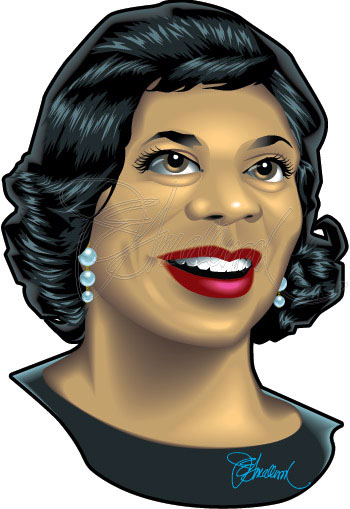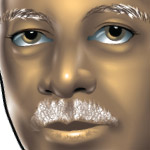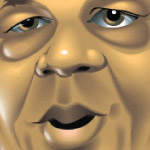
“If you have a purpose in which you can believe, there’s no end to the amount of things you can accomplish.”
|
|
|
 Marian Anderson Marian Anderson
(1897-1993) — First black contralto to perform with the New York Metropolitan Opera
By Bob Hilson
In 1939, at the height of Marian Anderson’s legendary singing career, concert organizers at Constitution Hall in Washington, D.C., told Anderson that she would not be allowed to perform there because she was black.
Undaunted, Anderson informed President Franklin D. Roosevelt and First Lady Eleanor Roosevelt of the denial. Soon after, she performed at a larger and more prestigious venue — on the steps of the Lincoln Memorial on Easter Sunday before a racially mixed crowd of more than 75,000 and millions more listening on the radio.
Within days of the Lincoln Memorial concert, the First Lady sent a letter to the Constitutional Hall promoters expressing her displeasure for not letting Anderson perform.
“I am in complete disagreement with the attitude taken in refusing Constitution Hall to a great artist,” Roosevelt wrote. “You had an opportunity to lead in an enlightened way and it seems to me that your organization has failed.”
With a voice described as a “vibrant contralto of intrinsic beauty” and a captivating but subtle stage presence, Anderson’s music thrilled audiences throughout the world from the mid-1920s through the 1960s.
Marian mania
At her peak, according to one modern-day critic, she “was the Beyonce of her day.” During her many tours of Europe, “Marian Mania” broke out as admirers quickly sold out her performances.
Although offered roles with many important European opera companies, Anderson always declined, saying she had no training in acting. Instead, she preferred to perform in concert and recital only. She did, however, perform opera arias within her concerts and recitals.
Anderson inspired numerous African American singers to pursue vocal careers, including Leontyne Price, Jessye Norman and Kathleen Battle.
Norman recalled the first time she heard Anderson: “I listened, thinking, ‘This can’t be just a voice, so rich and beautiful.’ It was a revelation. And I wept.”
Anderson also broke many racial barriers along the way.
In 1955, she was the first African American to perform at the Metropolitan Opera in New York City; the first African American woman to sing at a presidential inauguration (Dwight D. Eisenhower’s in 1957; she also sang at President John F. Kennedy’s inauguration in 1961); and the first African American to be invited to perform in the White House, accepting an invitation from President Roosevelt.
But despite her success, Anderson never wanted her race to define her music.
“When I sing, I don't want them to see that my face is black. I don't want them to see that my face is white. I want them to see my soul. And that is colorless,” she said.
“None of us is responsible for the complexion of his skin. This fact of nature offers no clue to the character or quality of the person underneath.”
She was given countless awards and honors during her career, including the Presidential Medal of Freedom in 1963, the Congressional Gold Medal in 1977, the Kennedy Center Honors in 1978, National Medal of Arts 1986 and a Grammy Lifetime Achievement Award in 1991.
She also performed at the March on Washington for Jobs and Freedom in 1963.
Born in Philadelphia in 1897, she became a member of the junior church choir when she was 6, and quickly became a featured performer singing solos and duets. That same year, her aunt took her to various functions in Philadelphia where she was paid to sing.
“A singer starts by having his instrument as a gift from God,” Anderson said. “When you have been given something in a moment of grace, it is sacrilegious to be greedy.”

Anderson died of heart failure in 1993 at age 96 while living in Portland, Oregon. She is buried in Collingdale, Pa.
|











